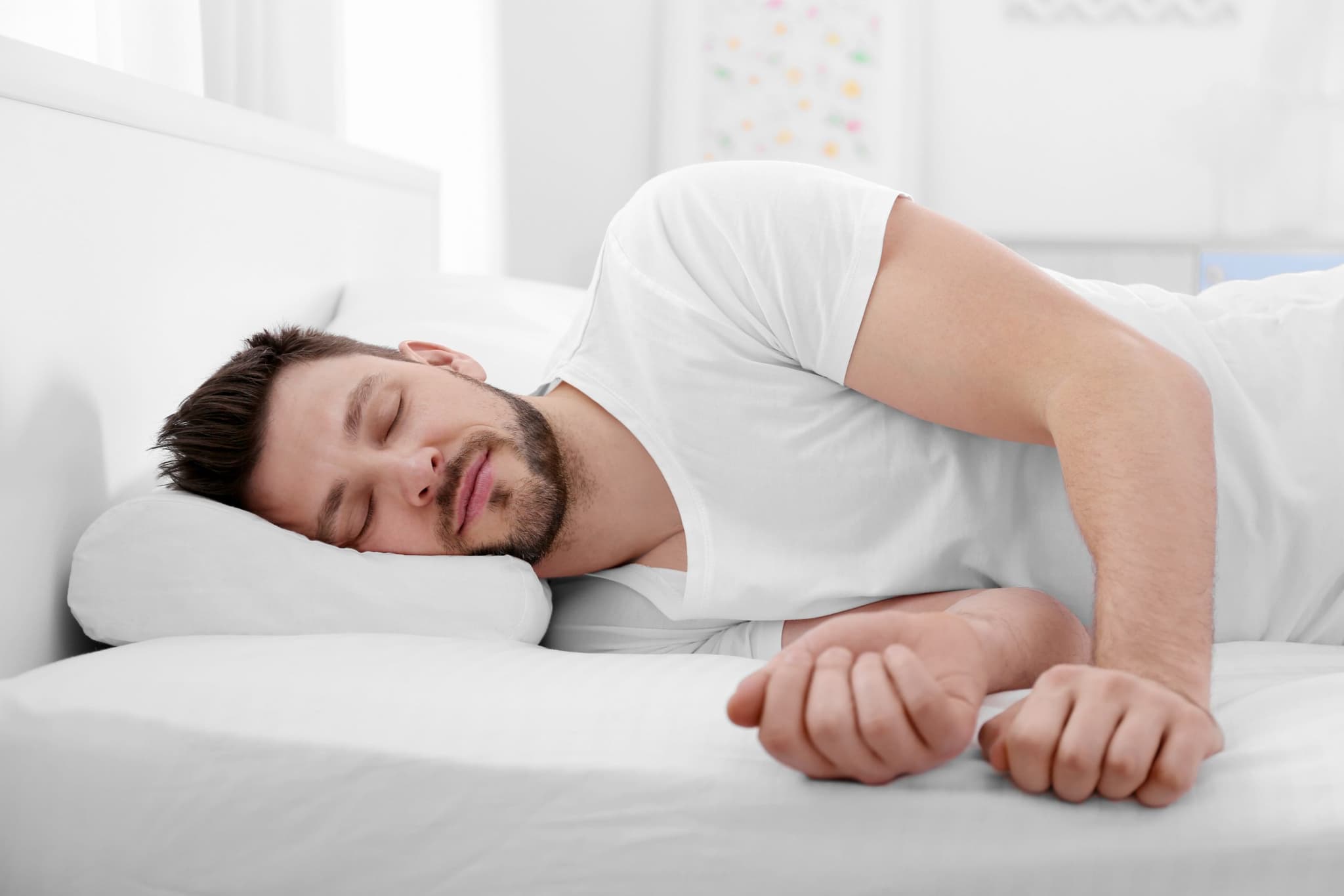
2023-07-10T16:46:58
Don’t let these 5 common injuries ruin your summer
- Family Medicine
- Urgent Care
- Value-Based Care
September 29, 2018 | Sleep Medicine • Value-Based Care

A continuous positive airway pressure (CPAP) machine is the most common treatment for obstructive sleep apnea (OSA). Sleep apnea occurs when your breathing becomes shallow, stops for a short period of time or your airway becomes partially or completely closed off while you sleep. This might not seem like a big deal, but OSA can be a risk factor for various medical problems. Periods of apnea can cause a depletion of blood oxygen levels and strain the heart, increasing the risk for congestive heart failure or coronary artery disease.
A CPAP machine is a preventive solution that will not only help keep you healthy but also increase your energy. During CPAP therapy, you will wear a mask over the mouth and/or nose while a machine pumps a continuous flow of air, allowing a clear pathway for air to enter your lungs. Some common warning signs of OSA are sleepiness, fatigue, morning headaches and dry/sore throat when you wake up.
Using a CPAP machine is not an easy transition and that is understandable. Most people struggle to adhere to regular use of the machine because of cost and discomfort, but you are not alone. Here are the top common reasons why people don’t use their CPAP machine and how you can overcome these problems:
If your doctor advises you to use a CPAP machine, you have two options: rent from the medical equipment company or purchase your own. The cost alone can discourage many people from using the treatment, but the good news is most insurance companies cover the cost. Some providers may cover up to 80% of the cost, meaning you would pay only about $100-200 out of pocket. Always contact your insurance provider to know what your deductible will grant you, and if you can’t afford your own at first, look into rental options until you can afford your own. Additionally, complications of sleep apnea include conditions like cardiovascular disease, type II diabetes and adult asthma, which can increase your healthcare costs.
Average Annual Cost Per Person
Cardiovascular Disease- $18,953
Type II Diabetes- $13,700
Adult Asthma- $9,127
Sleeping with a mask over your face can feel unnatural unless you are dreaming about being a fighter pilot on a F16 fighter jet. If you have tried a couple nights with no prevail, try consulting with your doctor or CPAP machine provider. They can help instruct you on how to properly adjust your mask for a better fit or browse other mask styles. There are many types of masks and it is important to find out which one suits your needs. Some of the newest masks on the market are smaller and lighter than those even a few years ago.
When you think of CPAP machines, you might imagine a giant machine next to your bed pumping air and making an annoying noise that relentlessly keeps you awake. Luckily, CPAP machines aren’t that big and the newest models are nearly silent. If you have an older model, look into buying a newer one. Make sure to check the air filter is clean and unblocked, this might help as well. You can always visit your doctor and have them check the machine to verify it is working properly.
This is a very normal problem for almost everyone who uses a CPAP machine. More often than not it is the forced air pressure that keeps people awake. Users usually have a hard time relaxing and falling asleep because of the continuous air flow. A good tip is to use the “ramp” setting on your machine. This feature starts off on a very low setting and slowly increases as time goes by, giving you a chance to fall asleep. Using a humidifier on the machine can also help with dryness allowing the air to be more comfortable and effective.
People sometimes experience anxiety when first using a CPAP machine. The first thing to remember is the machine is there to help benefit you and improve your quality of life. The best thing you can do to overcome the anxiety is try wearing it while you are awake. Walk around with it and get used to having it on while conscious. Secondly, try different relaxation methods while wearing the mask to create a calm state of mind. Lastly, changing the size or style of the mask can help you feel more comfortable.
If you find that your skin is red and irritated from using your CPAP machine, there are some easy fixes. An extremely bad reaction on your first night is not normal and you should contact your doctor in case of an allergic reaction. Otherwise, your mask might be too tight and needs to be loosened. Make sure you keep your pads cleaned and check to see if they are old or worn out. When choosing a mask it is essential to make sure that you are fit for a mask using a sizing guide to ensure for a perfect fit.
How to properly clean your CPAP machine:
Take the mask, tubing and headgear in the shower with you once a week and clean it with a mild dish soap. Hang it over the showerhead to dry and remember to properly hook it up later that night.
It is normal to find that you have removed your mask in the middle of the night while you sleep. Usually you are pulling it off because of two reasons: you move a lot in your sleep and/or your nose is congested so you remove it. Increasing the humidity can help the nasal passage stay open. If that does not work, using a chin strap might also help solve the problem. If you continue to find yourself waking without the mask on, you can set an alarm at night to check that the mask is still properly attached.
The first and easiest solution is to check if your device comes with a heated humidifier. Turning the temperature up on the humidifier will help keep the nasal passage moist and open. If not, consider getting one that does to most effectively solve the problem. Other options are purchasing a nasal saline spray or verifying that your mask isn’t leaking. A leaky mask can also be a common cause of a dry nose and mouth.
A lot of non-sleep specialist doctors might recommend that you use a CPAP machine. This does not mean that they are trying to sell you on something you don’t need. OSA is a common condition and a CPAP machine is an easy solution. If you still have doubts you can always see a sleep specialist to confirm that a CPAP machine is right for you.
Sources:
“CPAP Machines: Tips for Avoiding Common Problems.” Mayo Clinic. https://www.mayoclinic.org/diseases-conditions/sleep-apnea/in-depth/cpap/art-20044164
“Top 10 Most Common CPAP Mask Problems and Discomfort (& How to Solve Them)” AAST.
https://www.aastweb.org/blog/top-10-ways-to-solve-common-cpap-problems-and-discomfort
“CPAP 101: Expert Tips For Getting Started With Continuous Positive Airway Pressure (CPAP) Machines.” National Sleep Foundation.
“How Much Does a CPAP Machine Cost in 2018?” Sleep Restfully.
https://www.sleeprestfully.com/blog/how-much-does-a-cpap-machine-cost-in-2018/
“Financial incentive of home continuous positive airway pressure machine use in the inpatient hospital setting.” NCBI.
https://www.ncbi.nlm.nih.gov/pubmed/24448722
“The impact of sleep consultation prior to a diagnostic polysomnogram on continuous positive airway pressure adherence.” NCBI.
https://www.ncbi.nlm.nih.gov/pubmed/21700685
“Tips for Sore Spots and Skin Irritations – CPAP Mask Tactics.” CPAP Shop. https://www.thecpapshop.com/blog/tips-for-sore-spots-and-skin-irritations-cpap-mask-tactics/
“Why Do I Need A CPAP Machine?” Huffington Post.
https://www.huffingtonpost.com/american-sleep-association/why-do-i-need-a-cpap-mach_b_12152914.html
“Medical Care Costs Among Patients With Established Cardiovascular Disease.” AJMC. https://www.ajmc.com/journals/issue/2010/2010-03-vol16-n03/ajmc_10marnicholswebx_e86to93
“Economic Costs of Diabetes in the U.S. in 2012.” American Diabetes Association. http://care.diabetesjournals.org/content/36/4/1033
“Prevalence and Medical Costs of Chronic Diseases Among Adult Medicaid Beneficiaries.” NCBI.

WRITTEN BY:
The Live Better Team

2023-07-10T16:46:58

2023-07-06T12:52:34

2023-06-26T14:18:33

2023-05-03T09:45:20
This information is not intended to replace the advice of a medical professional. You should always consult your doctor before making decisions about your health.